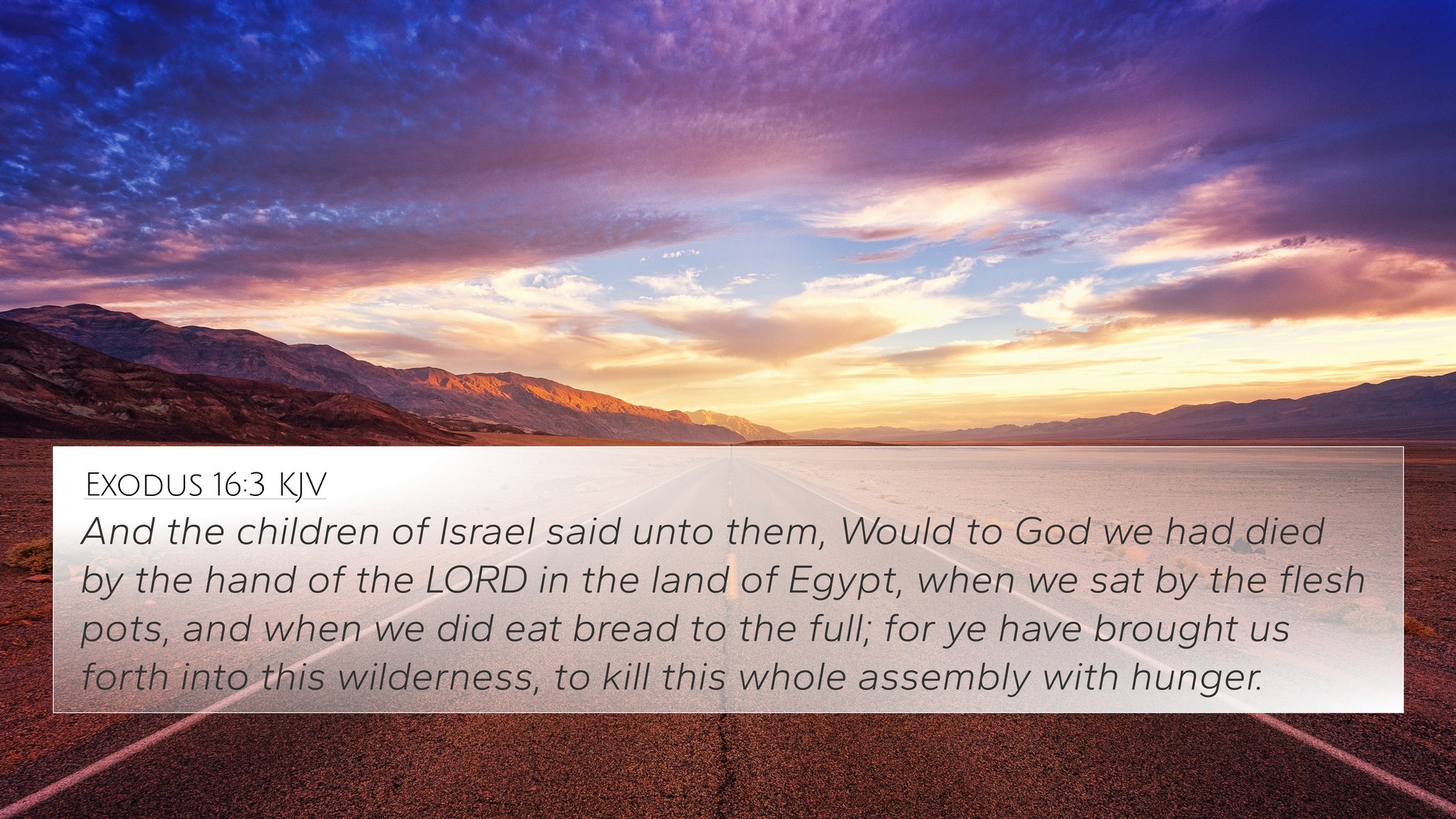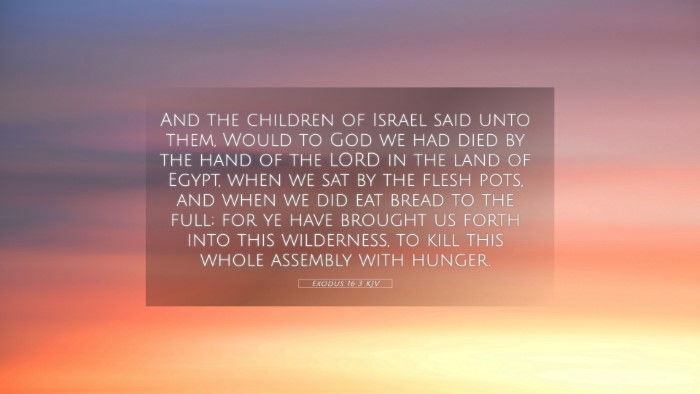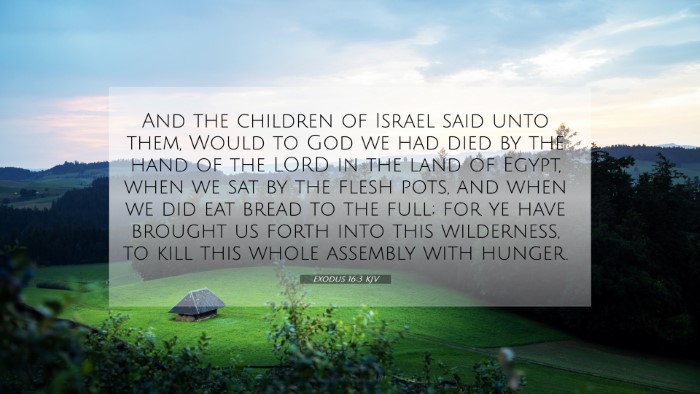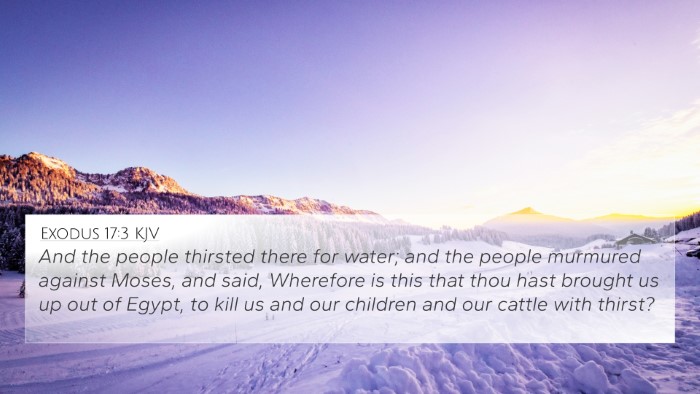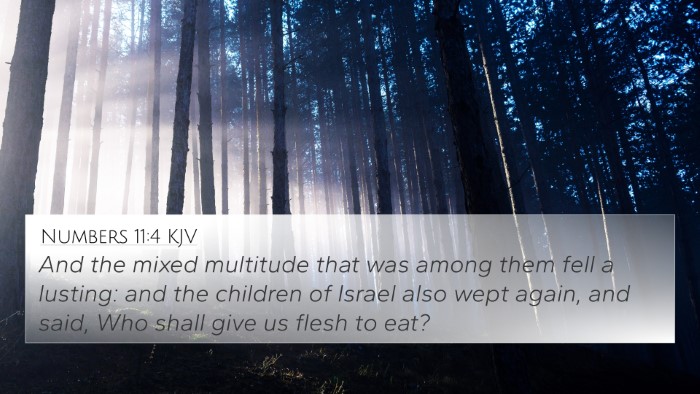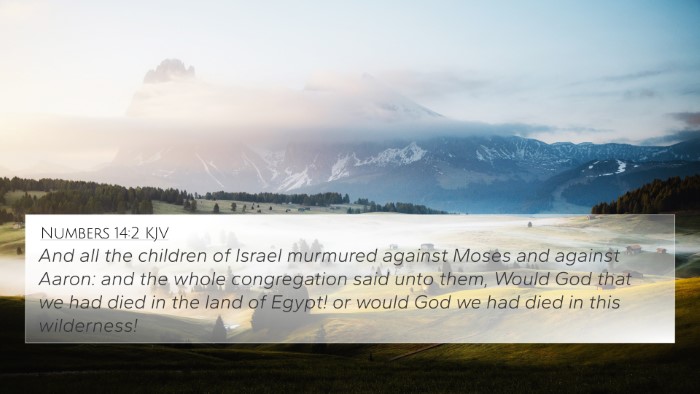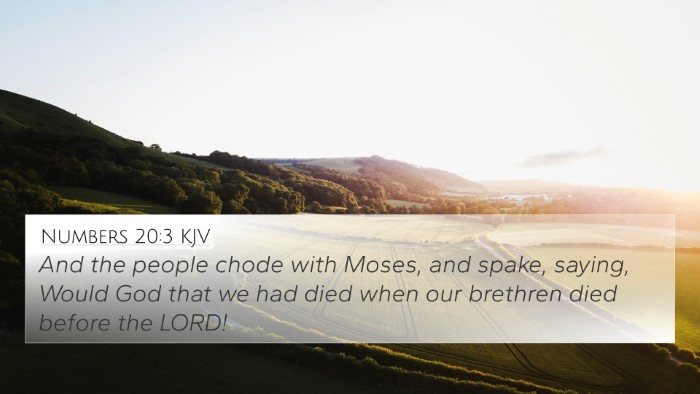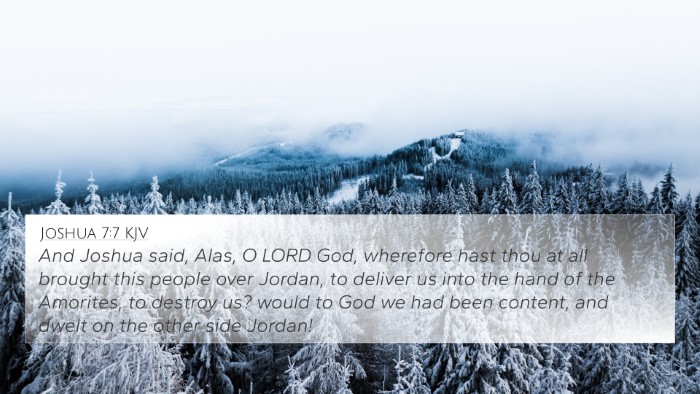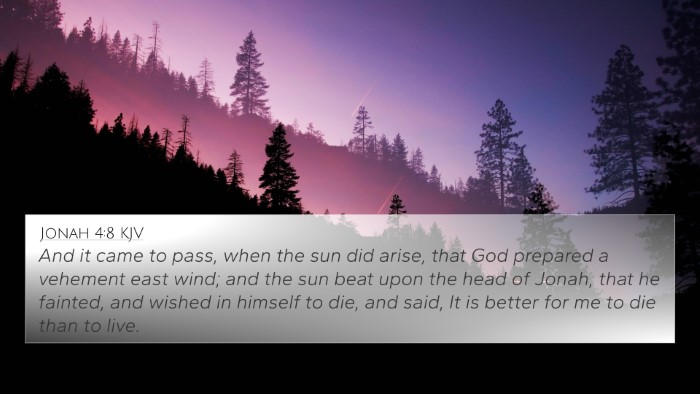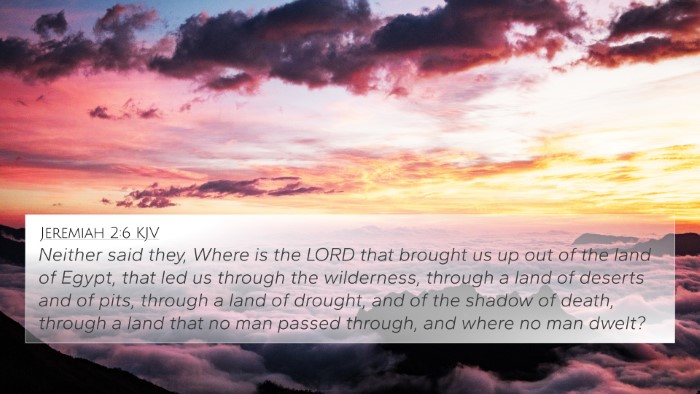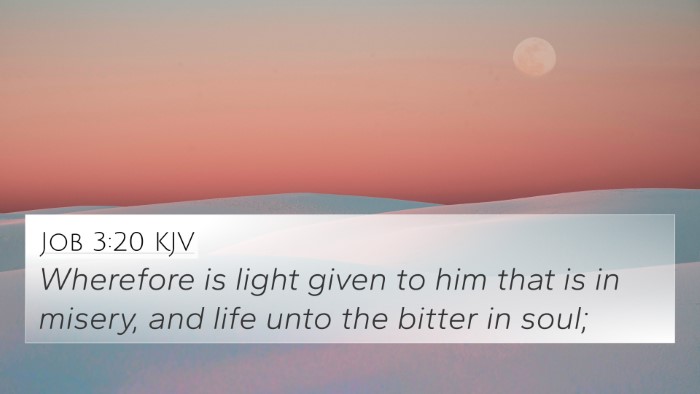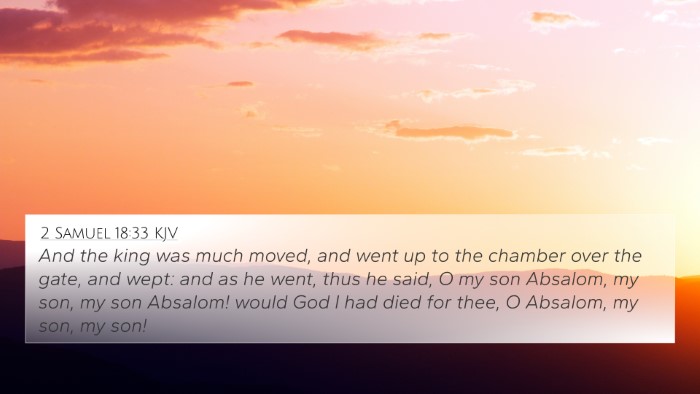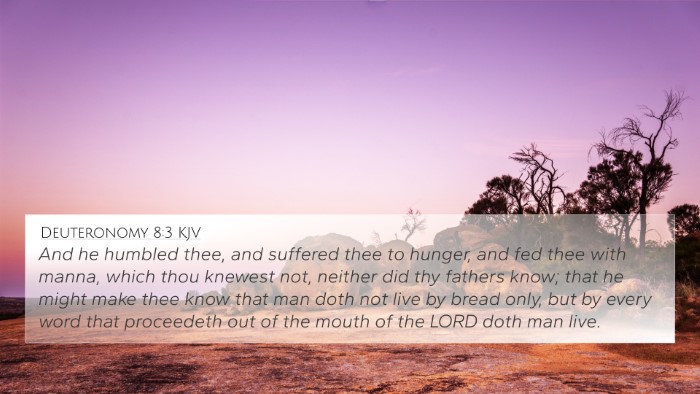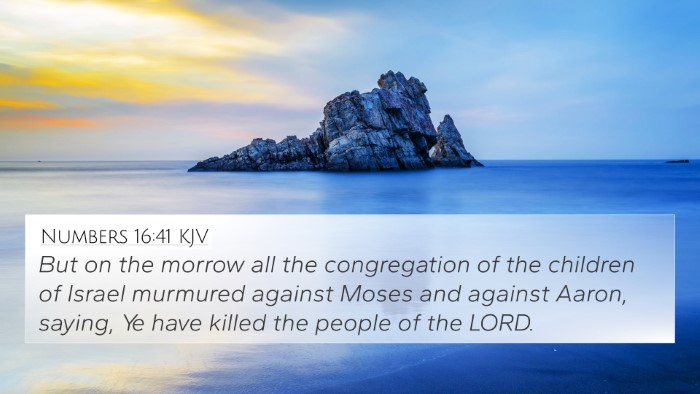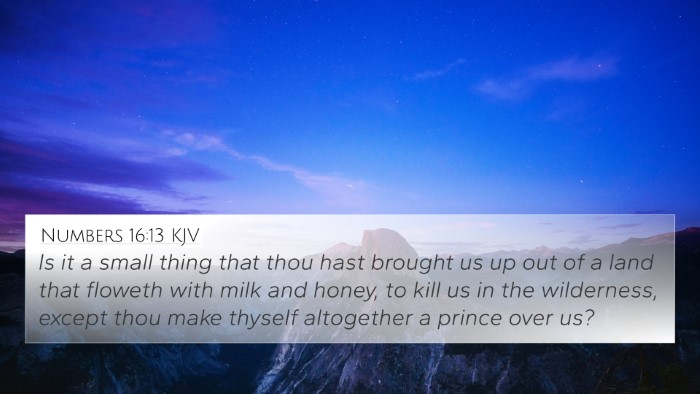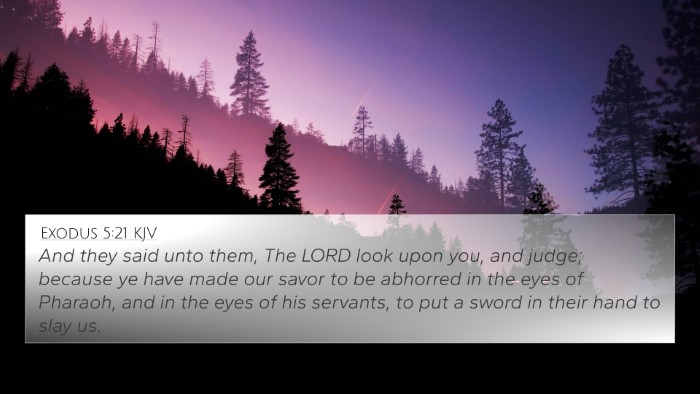Exodus 16:3 - Biblical Meaning and Interpretation
Exodus 16:3 states: "And the children of Israel said unto them, Would to God we had died by the hand of the LORD in the land of Egypt, when we sat by the flesh pots, and when we did eat bread to the full; for ye have brought us forth into this wilderness, to kill this whole assembly with hunger."
Summary of Insights
This verse reflects the profound discontent and longing of the Israelites as they journeyed in the wilderness. Their nostalgic recollection of the comforts of Egypt, despite its misery and bondage, highlights a common human tendency to romanticize past sufferings when faced with present hardships.
Through the combined insights of various public domain commentaries, we can gather deeper meanings from this passage.
Matthew Henry's Commentary
Matthew Henry emphasizes the Israelites' lack of faith during this period. He notes that their complaint reveals a fundamental distrust in God's provision and leadership. The "flesh pots" and the "bread to the full" they remember symbolizes not only physical sustenance but also the knowledge and assurance they mistakenly associate with their former life in Egypt. Henry argues that true believers should rely on God's promises rather than invoke memories of past bondage.
Albert Barnes' Commentary
Albert Barnes points out the irony of the Israelites’ situation. He remarks that their reference to "flesh pots" signifies the abundance they once had, albeit in slavery. Barnes suggests that this attitude points to a misunderstanding of freedom and a failure to appreciate God's miraculous sustenance, as seen in the manna they would soon receive. He illustrates the danger of forgetting God’s past provisions, which leads to discontentment and rebellion against God's plans.
Adam Clarke's Commentary
Adam Clarke provides a historical context, reminding readers that the yearning expressed by the Israelites represents a deep-seated human weakness—longing for what is familiar even when it is detrimental. Clarke explains that the people’s outcry reflects not only physical hunger but also a spiritual hunger, revealing their disconnectedness from God. He warns against such attitudes that fail to recognize God's past faithfulness and future promises.
Thematic Connections and Cross-References
The themes of discontent, nostalgia, and lack of trust in God's provision in Exodus 16:3 can be connected to several other Biblical texts. Below are some cross-references that illustrate similar sentiments or God's continual provision:
- Numbers 11:4-6: The Israelites again express their longing for the food they had in Egypt, demonstrating their persistent desire for former comforts.
- Psalms 78:19: This verse recounts how the people questioned God's ability to provide food in the wilderness.
- John 6:31: The New Testament references how the manna was provided to the Israelites, tying their experience to the teachings of Jesus regarding the true bread from heaven.
- Philippians 4:19: Paul reassures believers that God will supply all their needs, contrasting God’s promise with Israel's doubts.
- 1 Corinthians 10:6-11: Paul's warning about Israel's complaints serves as an admonition for Christians to learn from the past to avoid similar pitfalls.
- Exodus 3:17: God's promise to bring the Israelites out of Egypt to a good and large land implies divine provision that they seemed to forget.
- Deuteronomy 8:3: This verse explains that God allowed the Israelites to hunger to teach them to rely on Him, echoing the themes in Exodus 16:3.
Inter-Biblical Discussions and Applications
The discontent and complaints of the Israelites in Exodus 16:3 serve as a crucial lesson for modern believers regarding faith and trust in God's provision. The connections between this verse and the related passages above highlight a continuous theme throughout the Scriptures—that God is a provider in times of need, and His followers are called to remember His faithfulness.
For those engaged in bible cross-reference studies, tools such as Bible concordances and cross-reference guides can provide profound insights. Understanding how this verse relates to others enhances one's ability to analyze themes such as human frailty, divine provision, and the tension between past bondage and current freedom.
Conclusion
In Exodus 16:3, the Israelites exemplify the struggle between yearning for the past and facing the uncertainty of the future. It underscores the importance of remembering God’s past provisions as a source of encouragement for present and future reliance on Him. Continuous study of the Scriptures, along with recognizing bible verse connections and employing cross-referencing methods, can deepen one’s understanding and bolster faith.
